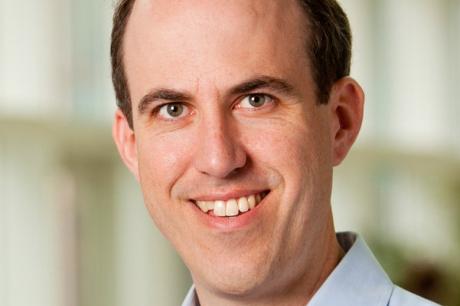Summer is a pivotal time for global health students, a moment for many to begin to apply the skills they have learned to self-directed research projects and practical internships. With the COVID-19 pandemic limiting travel in many parts of the world, most students are having to do that remotely, relying on WhatsApp and early-morning Zoom calls to engage with community partners and collaborators.
We checked in with a few students in the Master of Science in Global Health program to see how they are navigating the obstacles of remote research – and how they are finding creative ways to build relationships and expand their perspectives as they work on their summer projects.
Jean Gleason
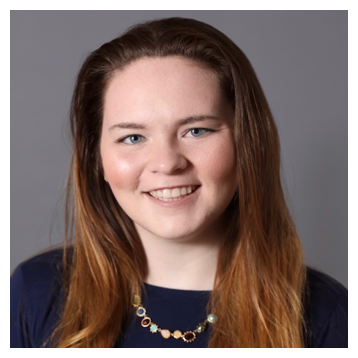 |
SUMMER PROJECT: MENTOR: |
What are you working on this summer?
I am working in Dr. Gregory Gray’s lab running novel respiratory virus detection and characterization by using pan-species assays to detect paramyxoviruses, coronaviruses, adenoviruses and enteroviruses. The samples I am testing are from Sri Lanka which is one of the five sites under this DGHI viral pathogen discovery network. Our central hypothesis is that before novel zoonotic pandemic pathogens fully adapt to humans and become highly transmissible, they are likely detectable among pneumonia patients living in emerging infectious disease hotspots. This work would serve as an early warning system to identify novel zoonotic pre-pandemic viruses that could benefit both our collaborating developing countries and the world in general.
What part of your project has been most rewarding?
I have roughly 4 years of internship experience, but none of my experience has been lab work. Being a part of this team has given me not only lab bench experience, but an in-depth understanding of how we can potentially set up a warning system for future pandemics such as COVID-19. Being in a local TV news story for our work was also a plus.
What’s one thing you’ve learned from your experience this summer?
In the lab, you have to expect the unexpected, which has been a challenge for my work style since I like to plan and am not the biggest fan of surprises. However, learning to adapt and navigate through challenges is something that will absolutely strengthen my work and me personally.
Nour Hammad
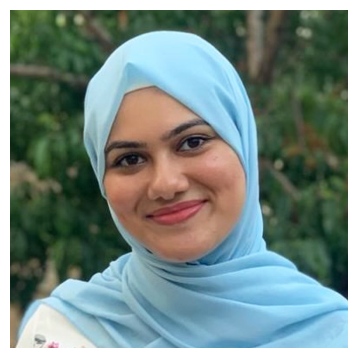 |
SUMMER PROJECT: MENTOR: |
What are you working on this summer?
My thesis is about the development of a text-messaging program called Healthy Roots, which aims to improve diet quality of mothers participating in the Women, Infants and Children (WIC) food support program. My work this summer was a continuation of what I have been doing since March – that is the implementation of the program. I am responsible for interacting with mothers to remind them and/or help them complete surveys on time. My mentor and I also worked on a protocol paper describing Healthy Roots over the summer; it has been submitted and that’s so exciting!
How has working virtually impacted your work with your community partners?
Working virtually is different in the sense that it is harder to establish rapport with participants over the phone. Being there physically makes relationship building smoother because non-verbal cues can tell you a lot about a person and their level of comfort. That being said, it is fair to say that working virtually is efficient and effective.
What part of your project has been most rewarding?
The most rewarding part is having interactions with mothers from WIC. They are amazing and I have had the pleasure and honor to be a part of their 3-month journey, which is the duration of the intervention.
What’s one thing you’ve learned from your experience this summer?
I have learned a lot of things from this experience. If I have to pick just one, I would say the skill of writing a scientific article. Writing a paper to be submitted to a journal was absolutely new to me, but it was so beneficial and I learned a lot in the process and what goes into writing papers.
Isabeaux Kennedy-Mitton
 |
SUMMER PROJECT: MENTOR: |
What are you working on this summer?
As a member of DGHI’s new practice-based pathway, I interned for Results for Development (R4D), a global nonprofit strategy consulting organization. I supported R4D’s West African portfolio team on the USAID-funded Health Systems Strengthening Accelerator (HSSA) project, with specific focus on a national health policy in Guinea, achieving universal health coverage in Togo and immunization program activities.
How has working virtually impacted your work with your community partners?
Despite time differences and the occasional technological mishaps, virtual communication with our longstanding Togolese and Guinean partners remained strong and consistent. However, the inability to be in-country was a challenge when establishing R4D’s new immunization program in Togo and Guinea. Fostering initial conversations and relationships with new community partners to grasp the reality of routine immunization coverage in Togo and Guinea was limited by virtual communication.
What part of your project has been most rewarding?
Witnessing the application of global health theory and best practices in action! R4D’s focus on health system strengthening emphasizes engaging with local change agents, such as government officials, civil society leaders and social innovators. As the global health field reflects on its responsibility to decolonize its practices, R4D’s commitment to engaging local stakeholders in the process of strengthening their country’s health systems exemplifies a sustainable and equitable approach to helping countries improve access to and quality of health care.
What’s one thing you’ve learned from your experience this summer?
The value of kindness! Each of my work partners overseas and at home treated me and each other with kindness and patience—two invaluable values in the inspiring but trying field of global health. Progress can be slow and at times seemingly impossible in global health; however, R4D showed me that treating each other with respect inspires productivity and success!
Arthi Kozhumam
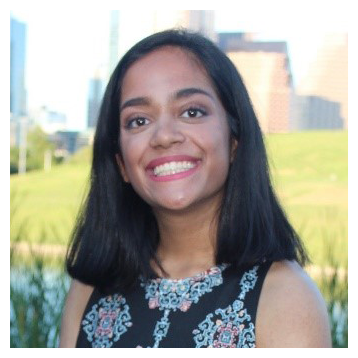 |
SUMMER PROJECT: MENTOR: |
What are you working on this summer?
My thesis consists of understanding and analyzing the prevalence and distribution of pediatric time-sensitive, preventable and common conditions in low- and middle-income countries. I am focusing my studies particularly on Brazil, Tanzania, and India as these are locations where our Global Emergency Medicine Innovation and Implementation (GEMINI) Lab works.
With guidance from clinicians in our group, I developed a survey I have distributed to physicians in these settings. I am distributing the same survey in two rounds while providing participants a summary of all responses in between. Using this information, I hope to filter Brazil pediatric hospitalization data to understand condition prevalence and distribution, especially across age range, gender and year. Currently, I have sent out the first round of my survey and am awaiting responses to analyze.
How has working virtually impacted your work with your community partners?
While virtual survey distribution can have challenges, it has taught me flexibility and creativity in navigating and designing carefully worded, detailed emails and instruction guides for each of the three settings. As I am using publicly available hospitalization data from Brazil, I am thankfully not impacted significantly by working remotely as I do not work directly with a community partner.
What part of your project has been most rewarding?
Learning from those with diverse thought, experience and training has been very helpful in drafting and adapting a survey that is an appropriate length, organized well and easy to complete. Being able to contribute to furthering the body of knowledge on pediatric conditions in low-resource settings, too, has been incredibly valuable.
What’s one thing you’ve learned from your experience this summer?
I’ve learned and practiced patience, especially after sending out the first round of my survey, and gratitude for the contributions of other members in GEMINI for helping me push my thesis project forward.
Ronan Murphy
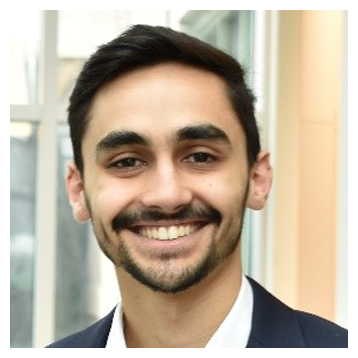 |
SUMMER PROJECT: MENTOR: |
What are you working on this summer?
My thesis looks at the possibilities of setting up a pandemic vaccine finance facility (PANVAX) that could prepare the world for the next pandemic and avoid the failure to distribute vaccines equitably that has been seen with COVID-19. In particular, we are investigating COVAX, the world’s current vaccine facility to learn from its successes and failures as an initial model. This summer the bulk of my work has been conducting qualitative interviews with stakeholders in the main 4 areas we have determined (COVAX, national government, pharmaceutical companies, and academia).
How has working virtually impacted your work with your community partners?
Zoom has allowed me to interview participants from multiple continents let alone time zones, all from the comfort of my own home (that is when my dog is not barking or my parents are asking me why I have not done the dishes yet).
What part of your project has been most rewarding?
What’s been so rewarding is seeing how my conception of what PANVAX could be changes after every interview. As I talk with more people, it feels like I am slowly peeling back a plaster mold of PANVAX. This question has stumped some of the greatest minds of our time and I’m enjoying taking a stab at it myself.
What’s one thing you’ve learned from your experience this summer?
The greatest thing I’ve learned is that we often have too cynical a view of the world. It’s easy to assume that international bodies are only out for power and private companies are only out for profit, but when you look closely there's a lot of good people just trying to do their job the best they can to save people.
Dorothy Nam
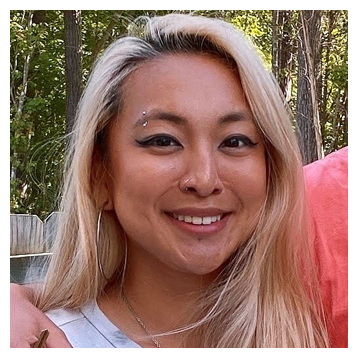 |
SUMMER PROJECT: MENTOR: |
What are you working on this summer?
For my master’s thesis, I am researching community knowledge and perception of sickle cell disease among students, health workers, youth community members and policymakers in Kalangala, Uganda. I am a part of Dr. Kearsley Stewart’s research team, and we collaborate with health workers and university students based in Kalangala to create tools such as focus group discussions, questionnaires and consent forms and to conceptualize short-term and long-term plans that are directly relevant to the community and their health needs.
Ideally, we would have implemented education-based programs to teach secondary school students and youth community members more about sickle cell disease. We had to pivot parts of our research due to the increase of COVID-19 cases in the region, and we will pursue this area when it is safer to have larger group gatherings. In the meantime, we will conduct interviews and focus group discussions to better understand community perceptions of the disease and use what we learn to help us refine our curricula.
How has working virtually impacted your work with your community partners?
Difficulties within virtual collaboration go beyond adjusting for time zones, but also include being cognizant of access to and affordability of stable Internet connection, reliable technology, and our community partners’ workload and other priorities. (The majority of our collaborators are also health workers at the sickle cell clinic in Kalangala.)
It’s not always intuitive to fully grasp the daily happenings of people’s lives. While our team strives to be empathetic and understanding, it’s important to keep my own gaps in mind and try to be open and honest in communication. Because virtual collaboration can often flatten the experiences of others for me, I often remind myself to check-in with others beyond our direct work. While achieving the ideal balance is definitely a work in progress, I’m incredibly grateful to be a part of a team that also checks-in with me virtually, over-the-phone, and with the occasional WhatsApp message.
What part of your project has been most rewarding?
The most rewarding part of my project thus far is being able to create professional and interpersonal connections with collaborators in Uganda. In order to gain and build trust, it’s incredibly important for me to know the folks I work with, and vice versa. This involves showing parts of my personality and life, having interest in knowing the collaborators beyond their work, and to continuously learn from and with them throughout this very humbling process.
This summer had the potential to just be a little lonely, a little stressful and a little confusing, and at times- it was. Being a part of this project allowed it to be a lot more worthwhile. I can say I have friends from a part of a world that I’ve never been to, but hope that I can visit one day. I hope our collaborators feel the same way about Durham. Knowing that I have been able to make those connections is a reward that goes beyond words.
What’s one thing you’ve learned from your experience this summer?
If there’s one thing that I learned this summer, it’s to keep pushing, but to also be kind to myself (and others). I’ve had to chisel down the tasks one at a time throughout the process, which often scared me into thinking that I won’t be able to accomplish all that needs to be done. But I have found that when I prioritize my wellbeing, I can accomplish so much and feel that I have not given too much of myself.
Diya Uthappa
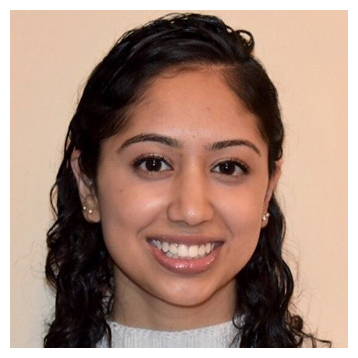 |
SUMMER PROJECT: MENTOR: |
What are you working on this summer?
This year I have been working with Dr. Chris Woods on several different COVID-19-related projects. My primary project aims to assess whether detection of SARS-CoV-2 on classroom environmental surfaces correlates to the detection of asymptomatic infections among individuals in the classroom. Over the 2020-2021 school year, we partnered with Duke School, a private school in Durham, to pilot the program, and over this school year, we aim to expand testing within several charter schools in the Durham area to aid in the safe return of children to schools.
What part of your project has been most rewarding?
The project has a built-in student engagement piece as the environmental sampling of the classroom settings was done by eighth-grade students at Duke School. It was extremely rewarding to hear back from school leadership about how much the students were enjoying being a part of data collection and to read the student testimonials that were featured in one of the school’s newsletters!
What’s one thing you’ve learned from your experience this summer?
I think the most important thing that has been reinforced this year is that global is also local – what might be global for you is local to someone else and vice versa. Being able to work within the community I live in and am a part of has been extremely rewarding especially during this pandemic which has really made evident how valuable our social and community ties are!
Hana Zwick
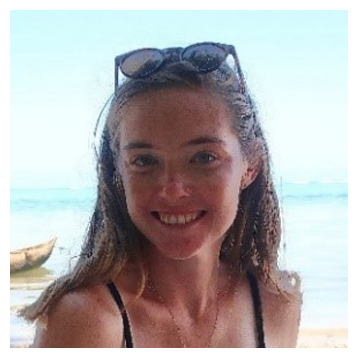 |
SUMMER PROJECT: MENTOR: |
What are you working on this summer?
This summer, I was an intern with John Snow International (JSI) in their Center for HIV and Infectious Diseases. I also worked on three of their tuberculosis-focused programs, two of which had global spans and one of which was a bilateral agreement with the Kyrgyz Republic.
How has working virtually impacted your work with your community partners?
Working virtually was difficult at times, but JSI had been doing so for months and were well-versed and happy to bring me into the fold. Technical difficulties were expected and understood, and not just from the company's experience because of the pandemic. Working with National Tuberculosis Programs all around the world means that many meetings are virtual and that some of those meetings have to happen late at night or early in the morning. I had a taste of that this summer, and watched how JSI employees handled their variable schedules with grace.
What part of your project has been most rewarding?
The most rewarding part of my internship was the feeling that I was making a difference. In a typical classroom setting, the work I do is to further my knowledge and skills, and this summer I was able to put those to use. From background research to abstract writing to data analysis, I knew that my contributions added up and assisted with projects that had tangible impact. That was incredibly rewarding, and emphasized to me that I was in the right place. Overall, I had a wonderful experience!


